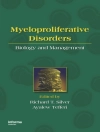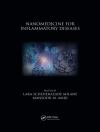Pervasive healthcare is an emerging research discipline, focusing on the development and application of pervasive and ubiquitous computing technology for healthcare and wellness. Pervasive healthcare seeks to respond to a variety of pressures on healthcare systems, including the increased incidence of life-style related and chronic diseases, emerging consumerism in healthcare, need for empowering patients and relatives for self-care and management of their health, and need to provide seamless access for healthcare services, independent of time and place. Pervasive healthcare may be defined from two perspectives. First, it is the development and application of pervasive computing (or ubiquitous computing, ambient intelligence) technologies for healthcare, health and wellness management. Second, it seeks to make healthcare available to anyone, anytime, and anywhere by removing locational, time and other restraints while increasing both the coverage and quality of healthcare. This book proposes to define the emerging area of pervasive health and introduce key management principles, most especially knowledge management, its tools, techniques and technologies. In addition, the book takes a socio-technical, patient-centric approach which serves to emphasize the importance of a key triumvirate in healthcare management namely, the focus on people, process and technology. Last but not least the book discusses in detail a specific example of pervasive health, namely the potential use of a wireless technology solution in the monitoring of diabetic patients.
Tabela de Conteúdo
Part I: Why Pervasive Healthcare and KM?.- Part I Introduction.- Chapter 1.Pervasive Computing and Healthcare.- Chapter 2. Implicit and Explicit Knowledge Assets in Healthcare.- Chapter 3. Regulating Pervasive e-Health Services.- Chapter 4. e-Health Complexity and Actor-Network Theory.- Chapter 5. e-health trends.- Part II: KM and Pervasive Health.- Part II Introduction: Making sense of Pervasive Healthcare: the Role of Knowledge Management.- Chapter 6. Managing Knowledge in Crisis Scenarios: the Use of Pervasive Technologies.- Chapter 7. The Analysis and Design of a Pervasive Health Record: Perspectives from Malaysia.- Chapter 8. Quality analysis of Sensors Data for Personal Health Records on Mobile devices.- Chapter 9. Smartphone Application Design and Knowledge Management for People with Demintia.- Part III: The INET Solution and Diabetes Self-Care.- Part III Introduction: Critical Perspectives on a Possible Solution.- Chapter 10. A Pervasive Technology Solution for Supporting Diabetes Self-Care.- Chapter 11. Achieving m-Health Excellence.- Chapter 12. Why Use Wireless to Monitor Chronic Diseases: the Case of Diabetes.- Chapter 13. An Examination of the Business and IT aspects of Wireless Enabled Healthcare Solutions.- Chapter 14. Applying the IPM Framework to Improve Remote Management in the Context of Chronic Disease.- Part IV: Various Global Initiatives.- Part IV Introduction: The Possibilities Are Only Limited by Our Imaginations.- Chapter 15. Online Health Information for Chronic Disease: Diabetes.- Chapter 16. Development of an Internet-Based Chronic Disease Self-Management System.- Chapter 17. Enablers of Implementing Knowledge Management Systems for Better Organisational Outcomes: An Indian Study.- Chapter 18. Expectations, Usability and Job Satisfaction, as Determinants for the Perceived Benefits for the Use of Wireless Technology in Healthcare.- Chapter 19. Web 2.0 Panacea or Placebo for Superior Healthcare Delivery.- Chapter 20. e-Health Readiness assessment from HER Perspective.- Chapter 21. Identifying the Taiwanese Electronic Health Record Systems Evaluation Framework and Instrument by Implementing the Modified Delphi Method.- Epilogue.
Sobre o autor
Dr Rajeev K. Bali is a Reader in Healthcare Knowledge Management at Coventry University. His main research interests lie in clinical and healthcare knowledge management (from both technical and organisational perspectives). He founded and leads the Knowledge Management for Healthcare (KARMAH) research subgroup (working under BIOCORE). He is well published in peer-reviewed journals and conferences and has been invited internationally to deliver presentations and speeches. He serves on various editorial boards and conference committees and is the Associate Editor for the International Journal of Networking and Virtual Organisations as well as the International Journal of Biomedical Engineering and Technology.
Mr Steve Goldberg In 1998 INET International Inc. was founded by Steve Goldberg. As INET’s President he leads the firm in data collection for international research studies, wireless healthcare programs and INET Mini-conferences. Mr. Goldberg started his 21-year information technology career at Systemhouse Ltd. At Crowntek, he formed an executive collaboration to develop a $30 million IT services business. During his tenure at Cybermation, he transformed the organization from supporting mainframe applications to client/server applications. Prior to INET, at Compugen he successfully built a high-performance team to meet government and corporate e-business needs.
Dr Indrit Troshani is a senior lecturer at the University of Adelaide Business School. He holds a Ph D in Computer Science from Edith Cowan University (Western Australia), an MSc in Computer-based Information Systems (Sunderland, UK), and a BBA (Hons) from Malaysia. His research interests and contributions include adoption and diffusion of mobile services andapplications in healthcare and network innovations in Business-to-Business (B2B) settings. Dr Indrit Troshani has been doing research in the area of m-commerce and e-business since he joined the University of Adelaide Business School in July 2003.
Nilmini Wickramasinghe, who currently holds the Epworth Chair Health Information Management was appointed in Dec 2009 as a Professor to RMIT University’s School of Business IT and Logistics after being a professor in the US for 15 years. She researches and teaches in several areas within information systems including knowledge management, e-commerce and m-commerce, and organizational impacts of technology with particular focus on the applications of these areas to healthcare and thereby effecting superior healthcare delivery. Professor Wickramasinghe is well published with more than 200 referred scholarly articles, several books and an encyclopedia. She has collaborated with many large organizations such as NASA and GE as well as leading healthcare organizations such as the Cleveland Clinic, Johns Hopkins, Kaiser and North Western Memorial Hospital. In addition, she regularly presents her work throughout North America, as well as in Europe and Australia.












